How your mode of travel can affect your opportunities for interaction
As we pulled onto the dirt soccer pitch where we were told we could camp, the entire population of the village of thirty or forty people came over and surrounded our Land Rover. We were in a remote region of Zambia; they spoke only a few words of English, and we spoke none of their language. We were hungry and tired after a long day’s drive, and we wanted to get our camp set up so we could cook dinner and hit the sack. We had no internal living space to cook in, so we would need to set up our outdoor table, and get our “kitchen box” of cooking implements and camp stove out of the back of the car. The village and the people, though obviously poor, did not look desperate, but we still didn’t feel that it was polite to get out our fancy cooking gear, prepare our dinner and eat it in front of them. We definitely did not have enough food to share. So it was an impasse. They stared at us waiting for us to do something interesting. We sat in our car, not sure what to do.
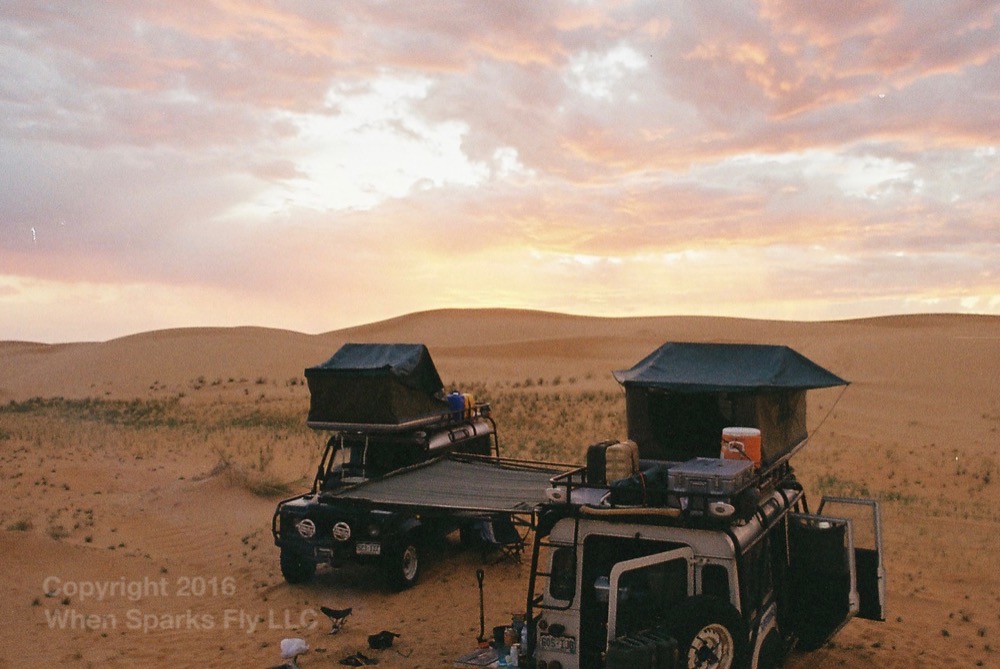
Living “around” your vehicle opens you up to more interactions. On this evening a man wandered in from the desert. We offered him a cigarette and a cup of tea, and he sat by the fire while we attempted to converse in a combination of English and Arabic. When he was done with his tea, he disappeared over a dune and into the desert.
Rule of Thumb: The Heavier the Vehicle, the More Potential Isolation
When you choose your mode of overland travel, you’re choosing more than just how much protection you’ll have from the weather. You’re also deciding whether you’ll be primarily living indoors or outdoors, and whether you’ll have the option of privacy when you want it or need it.
On foot you have the most exposure. Anyone who can walk can join you at any time, whether you’re in in good spirits and happy to have the company, or if it’s been a long day and you just want to keep your head down for awhile.
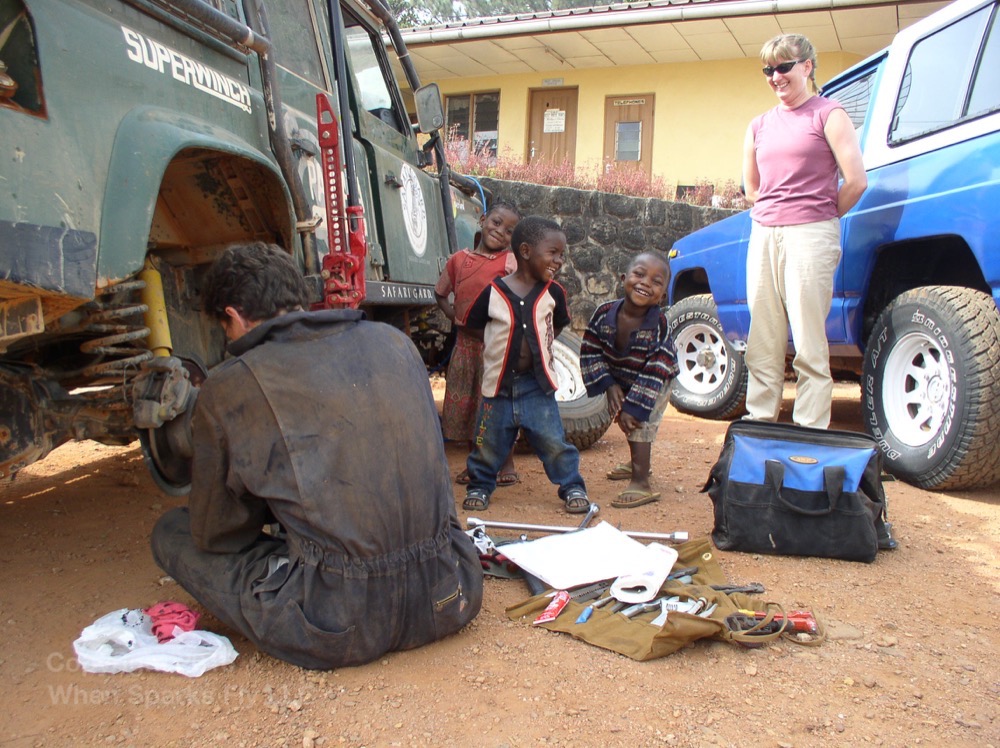
Unless you’ve paid for a private place to camp/park, anything you do outside is subject to investigation.
Traveling by bicycle isn’t too different – you’re moving a little faster than those on foot, but you’re still very much “out there” with nature and with the rest of humanity.
On a motorcycle you get some level of insulation and privacy when you’re moving. But any time you stop, again, you’re open to interaction whether you’re in the mood for it or not. And as with walking and bicycling, unless you’re camped in an official paid campsite your camp is fair game for visitors at any time.
On four wheels your level of potential isolation goes up. Even in a car or SUV where you’re living “around” your vehicle rather than in your vehicle, you can sit in your car with the windows up, giving you privacy but also isolating you from interactions with local people.
Impromptu Interactions Are One of the Unique Benefits of Overland Travel
As we discovered in our Land Rover many times, being outside cooking, relaxing, or updating our website frequently attracted visitors. One evening while preparing a meal in a roadside clearing, a group of about six people wandered into our camp. They all carried machetes and one had a dead iguana slung over his shoulder, which apparently was going to be dinner that night. They were fascinated by us and our cooking equipment and decided to hang out for awhile.
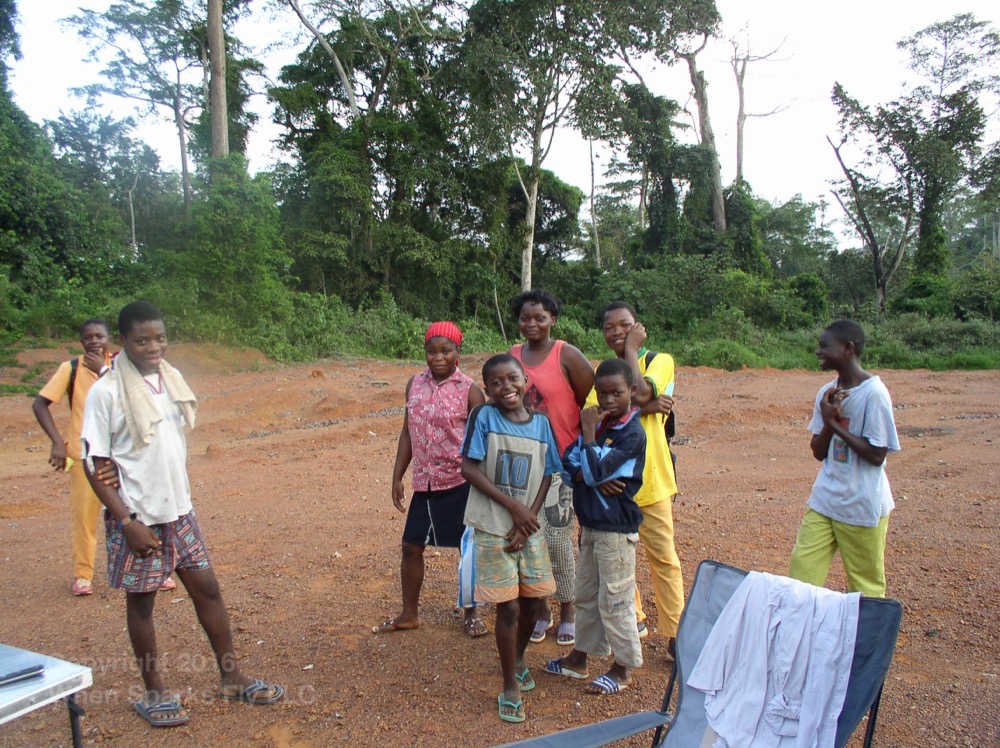
Campsite visitors can be stressful at times, but they can also lead to positive experiences.
We were able to communicate with them, and the fact that they were small in number made us feel more comfortable with the situation. I was chopping carrots for dinner, and I got the impression that they were surprised that I would be doing what to them was a woman’s job. Our laptop had primitive mapping software on it (this was in 2004) and we showed them a map of the world, and indicated where we were from in the USA, then zoomed in on Cameroon and found the name of a nearby town that they recognized. I don’t think they’d ever seen anything like that before, and they seemed to get a big kick out of it.
When we traveled in the Americas we had a camper van. Other than the fact that we didn’t have a toilet inside our van, we could stop, prepare a meal, and go to sleep without ever leaving our van. We didn’t do that too often, but we did tend to prepare meals and eat inside, simply because it was more convenient than setting up our outdoor table and moving all of our food and cooking utensils outside. When it was warm out, we’d always have the sliding door of our van open (with a screen to keep out the bugs) but the fact that we were inside created a barrier – we seldom had anyone walk up to our van and poke their head inside uninvited.
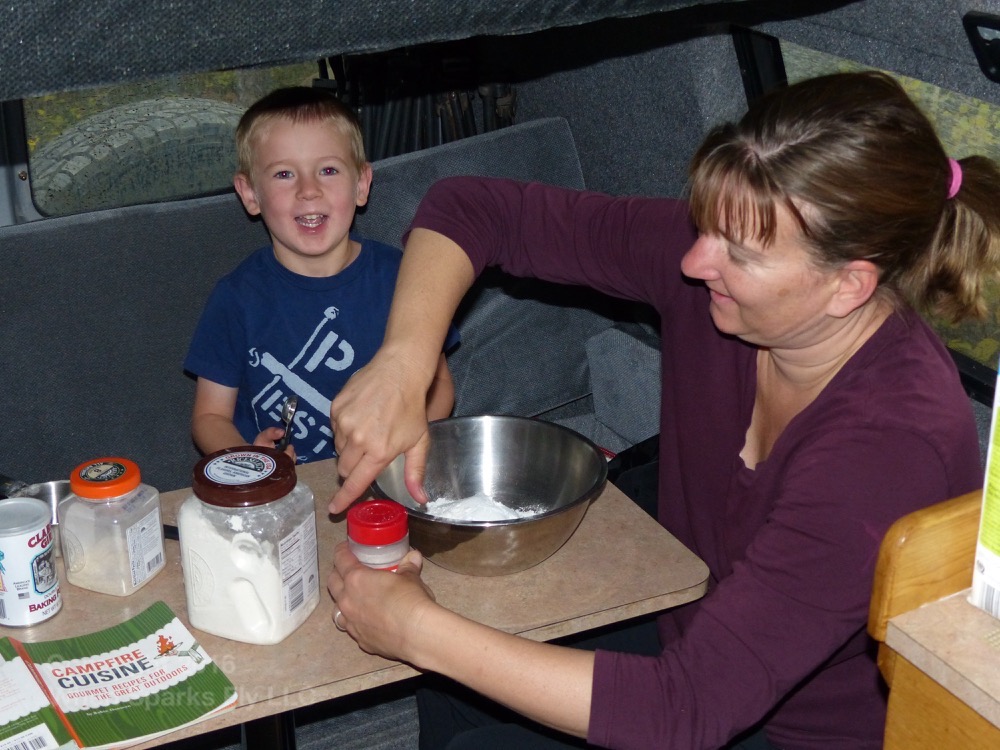
Making pancakes in the van in British Columbia. It was cold and rainy outside – the comfort of indoor living space can’t be denied. But we didn’t meet any exotic Canadians that morning!
The situation in Zambia might sound a little frightening. It was obvious to us that the people had no ill intent; they were simply curious. Eventually we got out of our car and managed to convey that we needed to cook and that we’d like a little privacy, please. They understood, and one of the leaders of the village led everyone away. I often think back to that situation, knowing that if I’d just been a little more outgoing and a little less tired and hungry that I probably could have turned it into a very positive experience.
The Amount of Interest Locals Have in Travelers Depends on Location
We had a lot more guests and a lot more people who were curious about us in Africa than we did during our trip through the Americas. I think there are a few factors at play here.
First, the cultures we encountered in Latin America were more similar to our own culture than those we encountered in rural Africa. For example, even in poor parts of Peru and Bolivia, I’d guess most people had someone in their family who had visited a “big box” retail store. That meant that our stuff and our customs were less foreign.
In Africa, however, we drove through villages where there was literally only one or two operable vehicles in town. Thus our convoy of Land Rovers and other vehicles made quite a spectacle there.
This leads to the second difference – the level of isolation of the people. In Africa we encountered many people for whom a journey to a mid-sized city would be an expensive and rare undertaking. In Latin America, with its extensive network of cheap public transport, this type of isolation is less common and people are more accustomed to seeing outsiders.
Interactions Are Largely What you Make of Them
There’s no right or wrong answer here – it’s not better to be more or less exposed. But it is important to understand how your choice of travel mode will affect your opportunities for interaction. If you tend to be a private, introverted person it is especially important – you may need the additional privacy of a camper in order to feel comfortable and re-charge. But it’s also important to recognize the potentially isolating effect that may have. So if you’re in a camper, don’t forget to set up that table and invite some strangers to dinner sometimes.
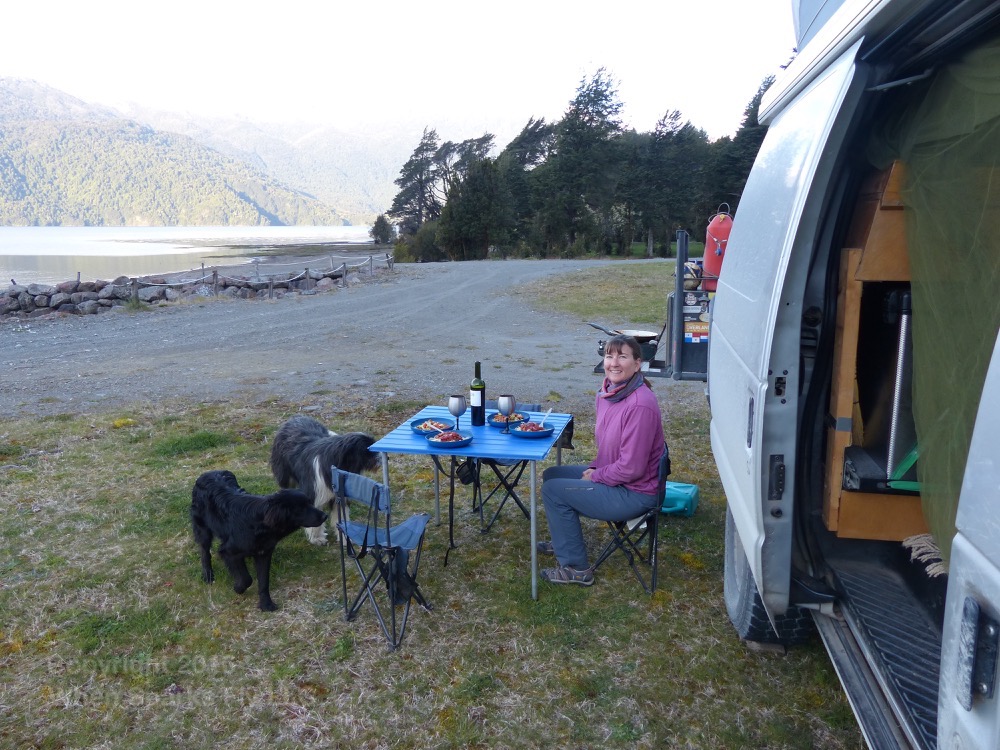
Even if it is a little more effort, sometimes it’s worthwhile to break out the table and meet some locals. Just don’t let them take your dinner!

Leave a Reply